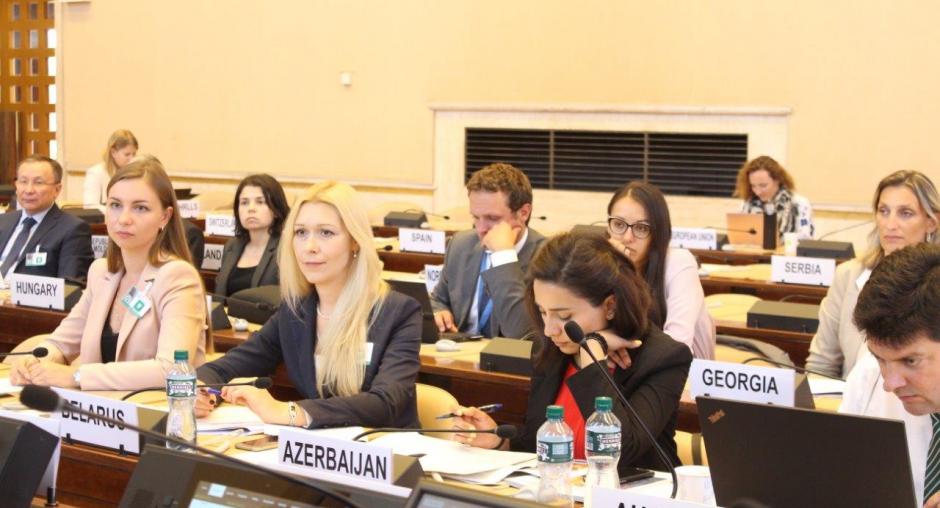OSCE and UNECE join forces on strengthening security of inland freight routes

GENEVA, Switzerland, 4 September 2019 –The wide array of regionally and internationally available security standards, instruments, technologies and methodologies at the disposal of governments to address the critical security risks faced by their inland transport systems was the focus of a joint OSCE-UN Economic Commission for Europe (UNECE) Inland Transport Security Discussion Forum on Strengthening Security on Inland Freight Routes that ended today in Geneva.
Over 50 security experts and officials from ministries of transport, customs committees and other relevant agencies as well as road and railway transport operators and private sector associations from across many countries in the Euro-Asian region participated. Participants took stock of “at the border” measures in support of international supply chain security, such as the use of customs risk management systems, profiling of suspicious cargo flows and exchange of preliminary customs information.
Discussions also focused on a range of available technology-driven solutions, including corridor-based tracking and tracing and the deployment of Artificial Intelligence and blockchain approaches. Cyber threats which pose a growing danger to increasingly digitalized inland transport systems were also debated.
“Over the years, transport security has been high on the OSCE agenda. Along with economic benefits, development of new technologies in the management of international freight routes carries considerable security implications, which should be assessed in a comprehensive and holistic manner,” said Ermelinda Meksi, Deputy Co-ordinator of OSCE Economic and Environmental Activities.
Konstantinos Alexopoulos, Chief of the UNECE Transport Economics and Facilitation Section said: “At the UNECE Sustainable Transport Division, through the work of our relevant Working Parties, we are well placed to serve as a platform for the exchange of information on threats and risks along specific inland transport routes and to enhance knowledge on available security solutions.” He added: “More effectively securing inland freight routes requires a multi-stakeholder approach, including not only transport authorities but also law enforcement, customs and border management agencies as well as private sector operators”.
